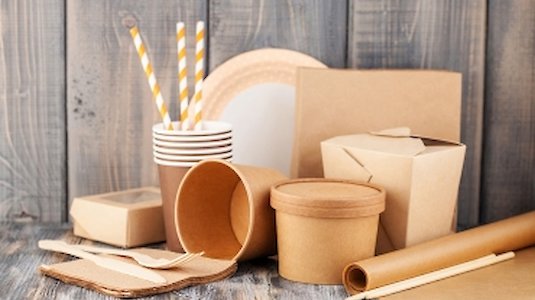Disposable tableware: Harmful substances also in alternatives to plastic
A recent survey by consumer organizations from Denmark, France, Italy, Spain and the VKI in Austria shows that alternatives to plastic tableware are not as harmless or even environmentally friendly as they are often portrayed: Of the 26 products available in Austria, 21 were contaminated with harmful substances.
This again shows that disposable packaging and tableware are problematic in many respects, regardless of the material. In addition to the consumption of resources, unnecessary CO2 emissions are produced over the entire life cycle, and in the end they usually end up in the trash after a very short period of use. The pollutants they contain can end up not only in the environment, but also in food and thus in our bodies. If the products are recycled, the pollutants are brought back into the cycle. Therefore, the Austrian Ecolabel avoids these products as much as possible.
More than half of the products contain pollutants
Since July 3, 2021, no more single-use plastic products may be placed on the market in the EU. As a result, products made of cardboard, palm leaves, wheat fiber or sugarcane bagasse are pushing their way onto the shelves as alternatives. Tests have now been carried out to determine whether such packaging contains harmful substances. The results are sobering: fluorinated compounds (so-called PFAS), chloropropanols, which are carcinogenic, pesticides and aluminum were detected. In 54 percent of the products tested, the pollutants were above various recommended guide values. Packaging made from sugar cane bagasse, a waste product from sugar production, was the most contaminated.
For alternative food packaging materials, unlike plastics, there are currently no concrete regulations in the EU for the chemicals they contain. The Association for Consumer Information (VKI) sees an urgent need for action here.
It is particularly alarming that in around two thirds of the products the PFAS concentrations detected were above the guideline value applicable in Denmark. Denmark is a pioneer in this respect, and packaging in Denmark, such as that of international fast food chains, complies with the limit value, but far exceeds it outside Denmark. This was proven in a study with the participation of the German environmental organization BUND.
Problematic industrial chemicals accumulate
PFAS are industrial chemicals that accumulate in the environment and can be absorbed by humans through the food chain. They are the basic building blocks of Teflon and Goretex, and are used, among other things, in water- and grease-repellent interior coatings for paper and cardboard packaging. These so-called "forever chemicals" are among the most problematic environmental pollutants currently (still) in use. In humans, they take years to be eliminated from the body and have negative effects on the liver, fat metabolism, reproduction, the immune system and the thyroid gland. It is also threatening that exposure to PFAS decreases the effectiveness of vaccines in children.
Numerous organizations are calling for their ban. The EU Commission has also set itself the goal of eliminating these chemicals from the market as far as possible. To this end, 5 member states have now taken the initiative and submitted a proposal for a general ban on PFAS in the EU.
Further information:
Der PFAS-Verpackungscheck (bund.net)
PFAS: Jahrhundertgifte in Konsumprodukten
PFAS: Perfluorierte Alkylsubstanzen zwischen Nutzen und Risiko (umweltbundesamt.at)
